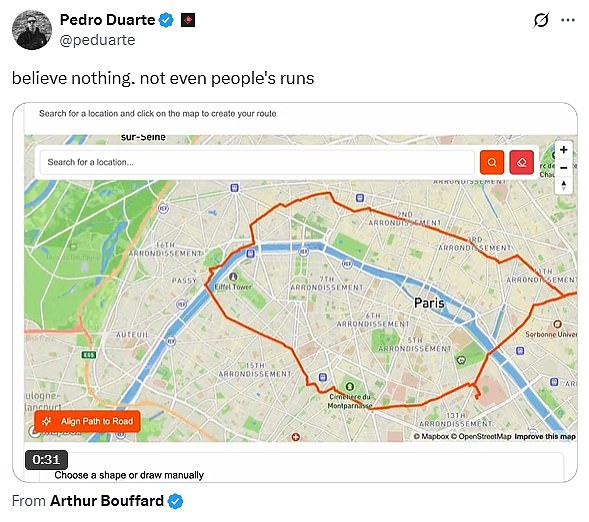
Strava Users Spark Cheating Debate Over Secret App for Faked Runs
Fake My Run: The App Letting Users Deceive Friends on Strava
Strava, the popular fitness app used by millions globally, is facing a quirky new challenge: users faking their runs with a tool called Fake My Run. This app, developed by Amsterdam-based programmer Arthur Bouffard, allows people to generate realistic-looking runs and upload them directly to Strava, sparking both amusement and outrage online.
How It Works
At fakemy.run, users draw custom routes anywhere on a map. The app snaps paths to real roads for authenticity and lets users adjust pace, distance, start time, and even add descriptions. Bouffard demonstrated creating a “run” across the Golden Gate Bridge or a loop in Mongolia with ease. The result? A downloadable GPS file that seamlessly uploads to Strava.

The app’s interface lets users craft routes that mimic real GPS data.
Why It Exists
Bouffard, an avid runner, says he built the app as a response to the rise of “Strava mules”—people paid $10–20 to log runs for others. “I wanted to challenge the culture shift around running,” he explained. “Social media has turned workouts into status symbols. Fake My Run proves you can’t always trust what you see online.”
He argues running has become less about personal growth and more about Instagram stories or TikTok bragging rights. “Your Strava profile is seen as ‘proof’ of these achievements,” Bouffard said. “But like any social media, it’s easy to fake.”

Users can design routes anywhere, from city streets to remote landscapes.
Social Media Backlash—And Support
Reactions online are split. Some users mocked the app’s absurd potential:
- “Insane, I hate it and I love it. Great work!”
- “I want to go ‘run’ across Antarctica.”
Others called it dystopian:
- “The digital world is a mess. Soon, people will flee back to reality.”
- “Why fake runs? You’re only cheating yourself.”
Critics compared it to “cheating at solitaire,” emphasizing fitness should be personal. “Who cares? Running is for health, not Instagram,” one user argued.

Mixed responses highlight debates over authenticity in fitness culture.
Strava’s Integrity at Risk?
While Bouffard claims the app is a “social experiment,” it raises questions about trust in fitness tracking. Strava has not commented but historically removes activities flagged as fake. Still, Fake My Run’s ease of use makes detection harder.
For now, the app remains a quirky rebellion against the pressure to perform online—and a reminder that not every Strava achievement is earned. As Bouffard quipped, “At least it’s cheaper than hiring a mule.”

Critics argue faking workouts undermines the purpose of fitness apps.
Whether seen as satire or a scam, Fake My Run taps into a broader tension: in an era obsessed with digital validation, even running isn’t immune to fraud.


